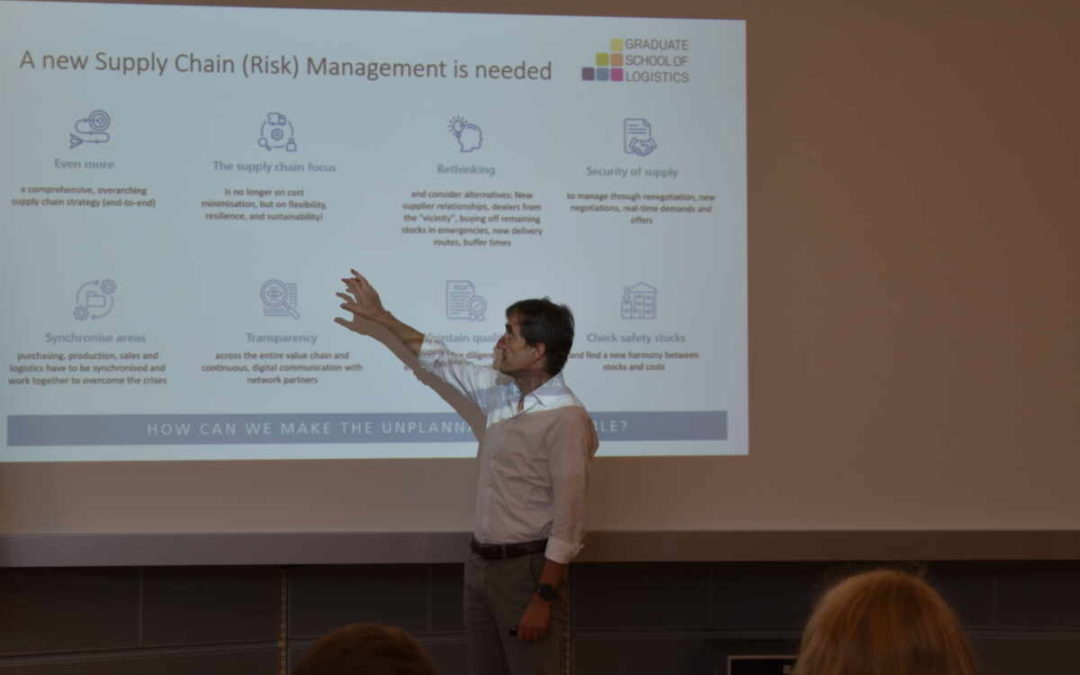After two Corona-related digital summer schools, the Graduate School of Logistics once again offered an on-site event from July 4-8. It remained true to its motto – one week, concentrated logistics know-how. Following the guiding principle of application-oriented doctoral research, the week was all about “New Supply Chain Management”. Scientific methods and the direct transfer into practice were conveyed by top-class speakers from Europe and the live case study in cooperation with Setlog.
The numerous political, economic and ecological crises have had a strong impact on our supply chains and value networks. Therefore, science and practice intensively discussed for one week the question how supply chains can be set up more flexible, resilient, digital and sustainable. For many years, logistics focused on efficiency.
The key strategic elements are transparency, global networks with strategic nearshoring, a new understanding of costs and diversification of partners. The best partner in implementing new resilient supply chains is digitalization. It needs Artificial Intelligence and Machine Learning, consortial platforms with high data protection and blockchain-based processing, Circular Economy approaches for greater sustainability, and open source components that are freely accessible and adaptable.
The fact that these theories coupled with some ideation and in the interaction of interdisciplinary groups can lead to excellent solution concepts was proven by the participants of the Summer School in the Live Case Study. Using the textile industry as an example, four groups developed solution concepts with which supply chains can counteract crises. The decision was not easy for the case study partner Setlog. Four very different concepts had to be evaluated, each with its own comprehensible approach. In the end, all group results could be combined and a great overall concept emerged. But not only that, numerous new approaches for joint papers also emerged.
At the end, the 19 participants were asked whether they preferred an on-site event or a digital event. The answer was clear: 100 percent prefer on-site. “I met exciting people, was able to expand min PhD network, had a lot of fun and laughed. Digitally, there are quite a few hurdles,” explained one participant.
